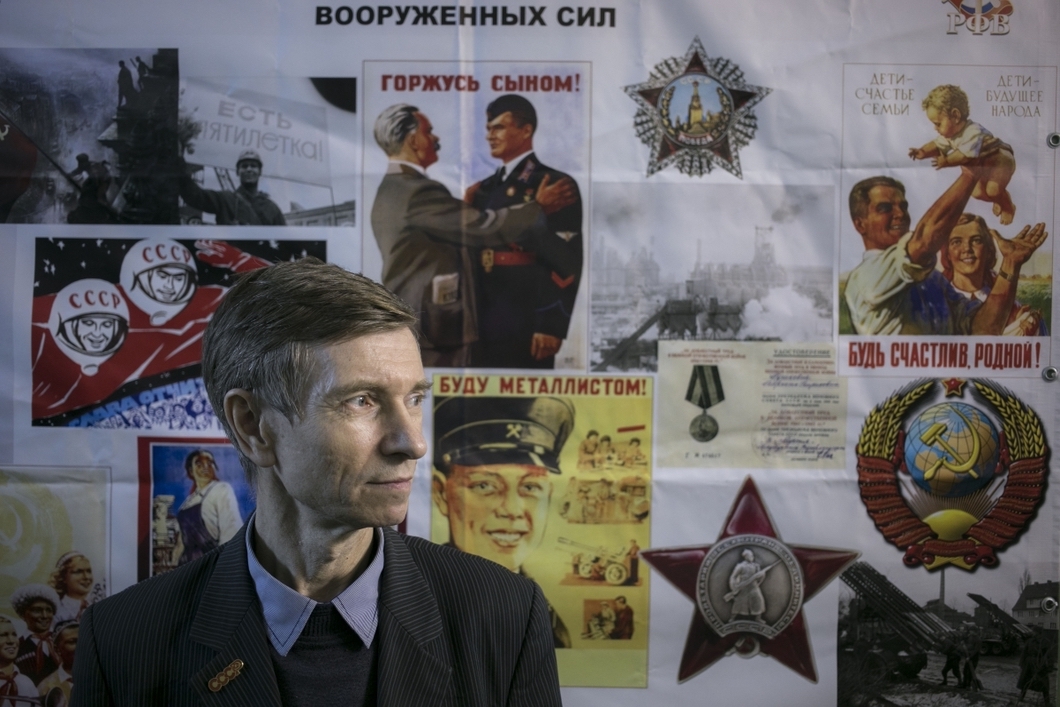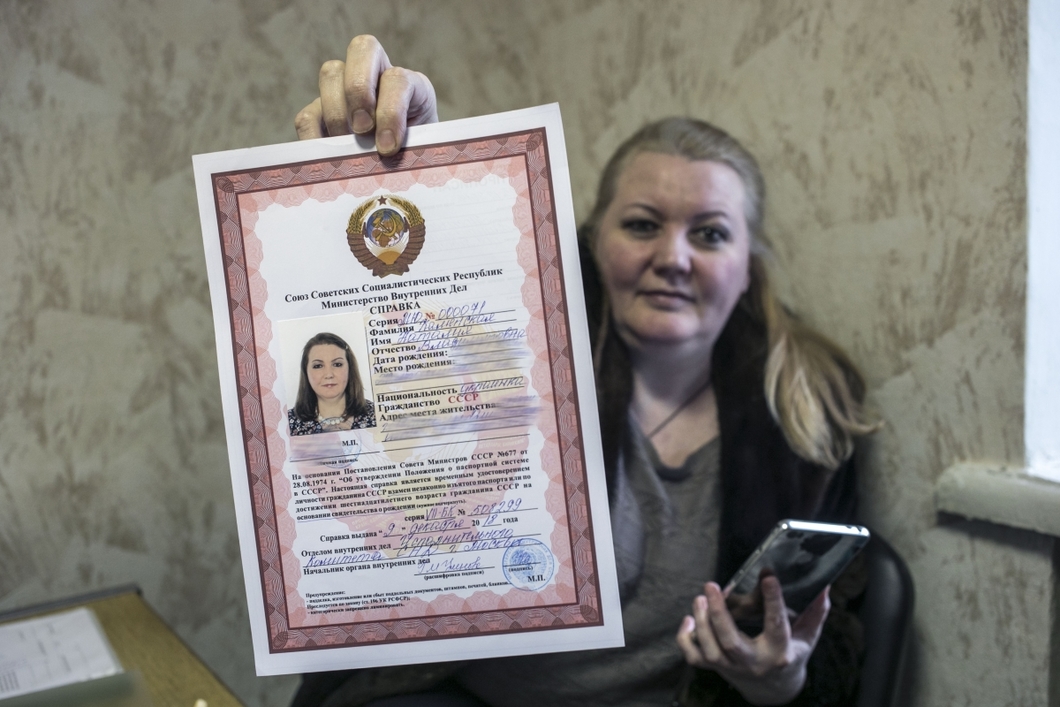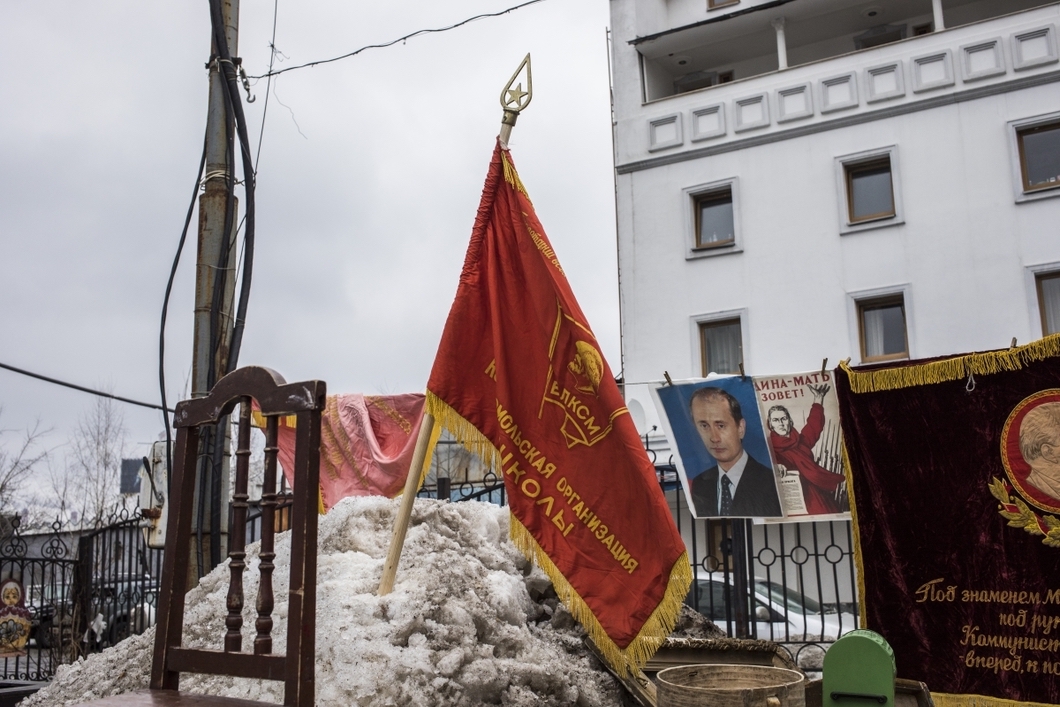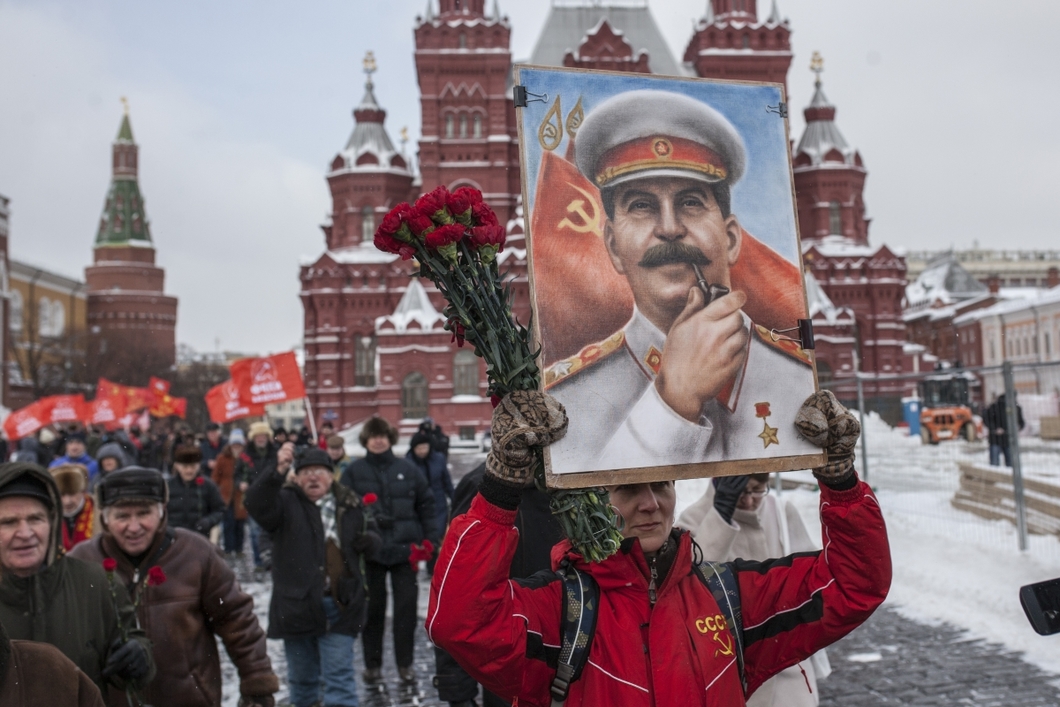The Russian organization that wants to revive the Soviet Union – and all its accoutrements
Based on an article by Novaya Gazeta
In a Stalinist high-rise in Moscow, there is a passage to a parallel universe: the passport office of the Supreme Soviet of the USSR.
“The Supreme Soviet of the USSR is just over a year old,” explains the first deputy head of this odd entity, Vladimir Kladinov.
The organization was founded in February 2018 by “citizens fighting for the revival of the country [USSR]”.

A former businessman, Kladinov almost immediately found like-minded people: one of them was economist Valentina Reunova, who at the time of her meeting with Kladinov had gained about two hundred supporters from the Perm and Novosibirsk oblasts, and formed something akin to a party which eventually transformed into the ‘Supreme Soviet.’
Reunova was unanimously elected chairman, and Kladinov became the first deputy. Soon after the “renewed” (party members insist on this wording) Supreme Soviet began work on returning the USSR to its legal boundaries.
• Hollywood film banned in Russia and Ukraine – but for different reasons
• Former USSR commemorates the 13 million victims of Stalinist political repression
This includes, among other things, the following:
• The election of Soviets of People’s Deputies in all regions of the Russian Soviet Federative Socialist Republic, as well as in other socialist republics;
• To return to the execution of the Constitution of 1977, which “nobody abolished”;
• “To do away with the claims of the English throne to the territory of the Soviet Union, since it seemed to remain unattended” (which has already been fulfilled, proudly emphasizes Reunova).
Party members say they believe the revival of the Soviet Union could occur as early as 2019. To facilitate the return of people to the “historical harbour”, the Supreme Council is ready to offer a service for the making of Soviet passports, which is why it is setting up passport offices throughout the country. The service currently costs 3,000 rubles ($46).

The Supreme Soviet says these ‘restored’ documents are the only ones that will be legitimate in the future Soviet Union. The current Russian passports, the organization says, is a piece of paper similar to those used on territories formerly occupied by the Nazis.
Although the Soviet passport has not yet been issued to anyone, certificates have already received wide circulation among supporters of the organization.
Newly ‘converted’ citizens to the Soviet state will not come to ruins, but to a rich, strong empire, the Supreme Soviet says. There is even money for this: 830 quadrillion Soviet rubles, to be given by Dolgorukiy-Simansky Bykov Rurikovich Monomakh George the Fifth Nikolayevich, “the richest man in Russia”, the head of the Rurikovich charity foundation.
Novaya Gazeta journalists later found out that this ‘money’ only exists in electronic form.
The Soviet, Cheka and hit lists
Almost any Soviet citizen can become a minister in the revived Union – after appropriate verification by the KGB, of course.
“Now there are problems with the proposed Minister of Education, because the woman who applied for this position is ‘a speech therapist who has been providing services to those who have suffered strokes’. What can a speech therapist say? We have no engineering minister. Young people seldom have knowledge, basically everything is purchased. It is also difficult to choose among the old people: not everybody retains their mind,” complains Valentina Reunova.
The rest of the ministerial and government offices have been staffed. True, the chair of the USSR Supreme Soviet, Larisa Papusha, recently died. Her last sentence signed during her life was an order to have Petro Poroshenko shot, including other leaders of the “false-Ukraine”.

USSR 2.0 is a young state, but there was already an attempted coup: the Supreme Soviet members Svetlana Zorya and Lyubov Kudryashova tried to remove Reunova from the post of chair, but failed.
Reunova sees this as the machinations of the Russian authorities.
For the attempted coup, the activists were sentenced in absentia to 13 years in prison (primarily because the Supreme Council does not have prisons yet – but they will!).
Experts
Throughout Russia, there are dozens of organizations that, to one degree or another, wish to revive the socialist giant. Experts assess these attempts in the following way:
“Faith arises because a preacher appears,” says Russian political analyst Dmitry Oreshkin.
“If a character who sincerely believes in the Soviet Union and Stalin comes out with a sermon, he will always have followers, especially if faith gives them a material advantage. Another rationale is growing frustration. Putin’s system causes the failure of many, and some are trying to find an alternative. The Soviet Union is one such mental alternative.”




















